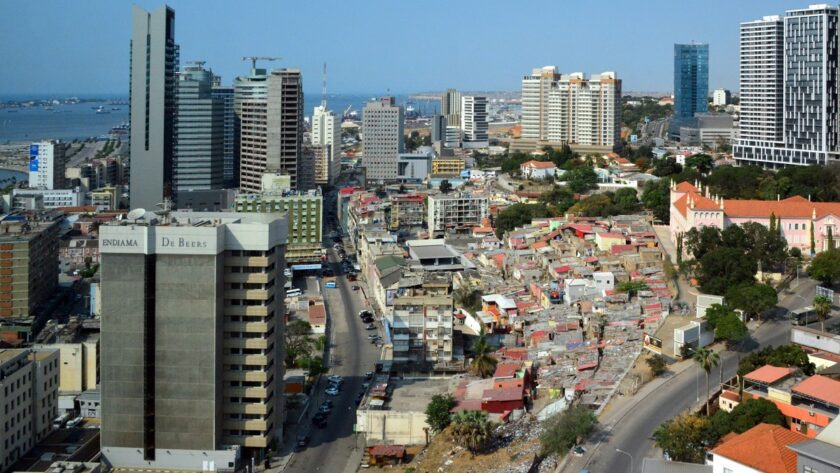Fitch Affirms Angola Ratings as Debt Burden Declines
Fitch Ratings has affirmed Angola’s Long-Term Foreign-Currency Issuer Default Rating (IDR) at ‘B-‘ with a positive outlook. In its recent rating note, Fitch said Angola’s issuer default rating balance significant structural weaknesses, including poor performance on governance and human development indicators.
The country is battling high inflation and one of the highest levels of commodity dependence, with declining government debt/gross domestic product, higher international reserves relative to peers and improving macroeconomic stability.
According to the rating agency, the positive outlook reflects the recent sharp decline in Angola’s central government debt, large current account surpluses and lower government financing risks underpinned by a supportive oil price environment.
Fitch estimates Angola’s real GDP growth to have accelerated to 3.1% in 2022, from 0.7% in 2021, primarily driven by a robust performance of the non-oil economy, but also a return to positive oil sector growth.
“We forecast economic growth to decelerate to 2.7% in 2023 and 2.5% in 2024, mainly due to a decline in oil production. We expect activity in non-oil sectors to remain buoyant, reflecting government spending on diversification efforts and declining inflationary pressures”.
Fitch analysts estimate inflation to have declined to an average of 22.2% in 2022 from 28.8% in 2021, driven by an appreciating Angolan kwanza and a higher supply of food.
It stated that food accounts for 55% of the weight on the consumer price index (CPI) basket, and analysts expect it to decelerate further to an average of 14% in 2023 and 11% in 2024 amid falling inflation expectations.
“We forecast Angola’s cash balance to shift to deficits of 0.8% and 1% of GDP in 2023 and 2024, respectively, from an estimated surplus of 1.7% in 2022”, Fitch said in the rating note.
It said this will be driven by a decline in government revenue to 21.1% of GDP in 2023 and 19.3% in 2024, from an estimated 23.6% in 2022 (the highest level since 2015), as average global Brent prices fall from US$100 per barrel litre (bbl) to US$85/bbl and US$65/bbl over the same period.
Government expenditure will also decline relative to GDP, albeit more marginally, to 20.0% in 2024 from 21.4% in 2022, according to the rating note.
“We expect Angola’s non-oil primary deficit to narrow to 9.8% of non-oil GDP in 2023 and 5.7% in 2024 -from an estimated 11.6%in 2022-, reflecting a sustained growth of the non-oil economy as well as falling expenditure”.
Fitch stated that the government has used part of its windfall oil revenue to prepay US$926 million of debt to Chinese creditors in 2022.
This means external amortisations will remain broadly stable in 2023 and 2024, amounting to 3.8% of GDP (US$4.4 billion) and 3.7% (US$4.6 billion), respectively, from 3.8% in 2021 (US$4.5 billion), it noted.
Analysts said external financing needs would be met through a combination of proceeds from the 2022 Eurobond issuance, credit lines from multilateral and bilateral sources, the use of government deposits, and liquidity in escrow accounts related to oil-backed loans from China.
Fitch said it expects Angola’s central government debt will decline to 54.5% of GDP in 2024, from an estimated 60.3% in 2022 and 77.4% in 2021.
The decline in the debt/GDP ratio in 2022 was mainly driven by the substantial oil-driven appreciation of the kwanza. Analysts expect the additional decline through 2024 to be driven by strong nominal GDP growth and primary surpluses.
More than 70% of Angola’s debt stock is external, according to Fitch Ratings, saying the public debt/GDP ratio will consequently fall below the ‘B’ median, which it forecast at 58% over 2023-24.
However, Fitch said the structure of Angola’s public debt has improved in recent years, but risks persist. The average maturity of external debt increased to 10 years at end-2021 from five years in 2018.
Despite improvements in the composition of domestic debt in favour of local-currency government debt, dynamics remain exposed to kwanza depreciation, as 80% of government debt is linked to or denominated in foreign currency.
Interest rate risk also remains elevated, given that 77% of total external debt has a variable interest rate. Angola’s interest costs are high relative to peers with the 2022 estimated government interest to revenue (17% in 2022) well above the ‘B’ median (11.5%).
Fitch estimates Angola’s current account surplus to have widened to 12.7% of GDP in 2022 from 11.3% in 2021, mainly reflecting improvements in the primary and secondary income balances.
“We expect the trade of goods’ surplus to have narrowed by 3.7 percentage points to 22.7% of GDP, despite an oil-driven nominal increase of close to 44%. >>Nigeria Economic Growth to Slow Down in 2023 –GlobalData Forecasts
“The current account surplus will then narrow to 8.1% and 2.6% of GDP in 2023 and 2024, respectively, as oil receipts decline amid falling average global Brent prices”.
International reserves fell to US$14.4 billion in 2022, from US$15.5 billion in 2021, despite the wide current account surplus, partly due to the transfer of a portion of export receipts to escrow accounts for the service of debt to Chinese creditors.
Fitch Ratings said it expects reserves to increase to US$15.6 billion in 2023 and US$17.1 billion in 2024 as oil sector-related FDI outflows diminish amid declining global Brent prices.
“Our forecasts imply that reserves will cover an average of 5.7 months of current external payments over 2023-24, well above the ‘B’ median of 3.2 months”, it stated. # Fitch Affirms Angola Ratings as Debt Burden Moderates
>>>Ghana Slams MTN $773m Tax Bill After Audit

